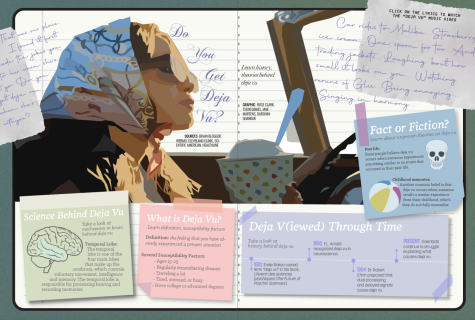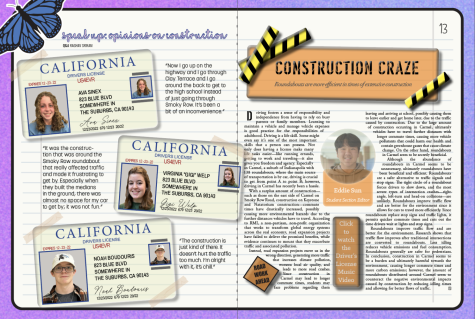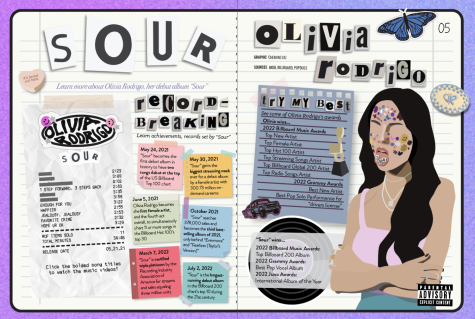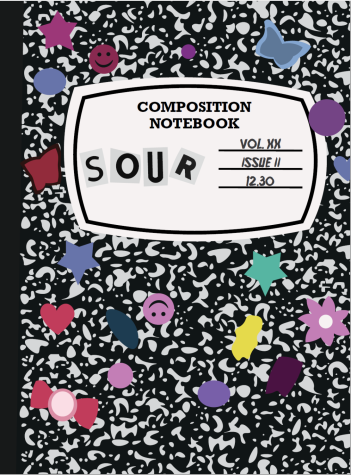love to hate her
Female songwriters are more than men they dated
 Olivia Rodrigo’s album “Sour” was a massive success. It debuted at Number 1 on the Billboard 200 chart for five weeks, becoming the longest Number 1 album by a female artist in 2021. The album was believed to be about Rodrigo’s rumored ex-boyfriend and co-star, Joshua Bassett.
Olivia Rodrigo’s album “Sour” was a massive success. It debuted at Number 1 on the Billboard 200 chart for five weeks, becoming the longest Number 1 album by a female artist in 2021. The album was believed to be about Rodrigo’s rumored ex-boyfriend and co-star, Joshua Bassett.
This theory quickly overshadowed Rodrigo’s hard work as she received negative comments on her past relationship. Her name practically became synonymous with Bassett’s. I remember seeing dozens of headlines and TikToks about Rodrigo and Bassett, but there wasn’t much coverage of just Rodrigo and the debut album itself.
In an interview with The Guardian, Rodrigo responded to criticism that she only wrote songs about boys. She said, “I’m a teenage girl. I write about stuff that I feel really intensely—and I feel heartbreak and longing really intensely—and I think that’s authentic and natural.”
This media frenzy also negatively affected Sabrina Carpenter, another rumored ex-partner of Joshua Bassett.
In a song Carpenter released in July 2022, she sings, “I got death threats filling up semi trucks. Tell me who I am, guess I don’t have a choice. All because I liked a boy.”
Rodrigo and Carpenter are not the first female singers to struggle with this negative and sexist mindset. Taylor Swift has also spoken out about how hurtful being defined by a past boyfriend is.
Fanbases are known for crossing the line when it comes to celebrity gossip and drama. This is made so much worse when female celebrities are recognized more for the men they have been connected to than their own talent.
In an interview with 2Day FM, Swift said, “You’re going to have people who are going to say, ‘Oh, you know, like, she just writes songs about her ex-boyfriends.’ And I think frankly that’s a very sexist angle to take. No one says that about Ed Sheeran. No one says that about Bruno Mars. They’re all writing songs about their exes, their current girlfriends, their love life, and no one raises the red flag there.”
It may seem like female songwriters should just live with this press because they choose to write songs referencing past relationships. But female artists shouldn’t have to brace for, or change their music to avoid, hyperfixation on a past partner when they release a new song.
In the same interview, Rodrigo said, “I don’t really understand what people want me to write about; do you want me to write a song about income taxes? How am I going to write an emotional song about that?”
Fans and publications both need to remind themselves that while an ex-partner referenced in a song is important, the songwriter and their art should be what they should focus on at the end of the day, especially concerning female artists because of a long history of uninterest in a woman’s successes in the music industry.






